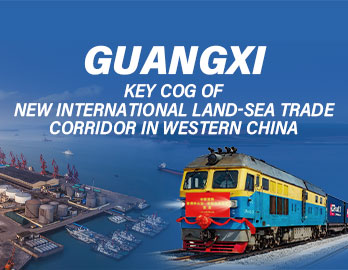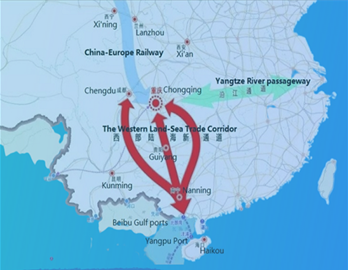Collective economy lifts Guangxi villagers out of poverty
Updated: 2020-07-26
Wei Yuefang no longer needs to share her home in the karst mountains of the Guangxi Zhuang autonomous region with cattle and pigs.
Wei kept the animals in her family home for decades, before relocating the livestock to a barn built by the village for shared use by poverty-stricken farmers.
The 62-year-old from Luanzheng village, Long'an county, is also benefiting financially from a shared community approach to animal breeding.
The karst environment of Luanzheng, which has scant arable land, is unsuitable for agriculture and the rocky terrain makes the area difficult to access by road.
Younger villagers moved to cities for a better life, while those who stayed behind struggled to make ends meet. Farmers relied on cattle to cultivate their land and transportation depended on horses.
In 2016, however, the lives of villagers began to change after the collective economy approach took hold.
Tian Yi, a 39-year-old poverty alleviation official, can be credited with translating the idea into reality.
He visited the village in 2016 and noticed that the locals were experienced in raising animals, and encouraged them to adopt livestock farming.
He helped forge an agreement between local government officials and the villagers.
With the financial support of the government, a cattle husbandry center was established. Villagers were given an opportunity to become shareholders, and enterprises were set up to run the business.
Meanwhile, the local government renovated the roads and electricity and water supplies to facilitate cooperation.
Over 380 households in the village have been involved with four husbandry centers, raising hundreds of cattle.
The village has also invested in the hog industry, which had generated income of 100,000 yuan ($14,280) as of October.
A second pig breeding center began operations in April and is expected to generate millions of yuan every year.
Long Fukang, who works for a cattle breeder, said poor villagers can secure a steady income from the beef industry.
Tian said that last year, local businesses, including beef and pig producers, generated an income of nearly 250,000 yuan for the village. He said income is expected to reach 280,000 yuan this year.



